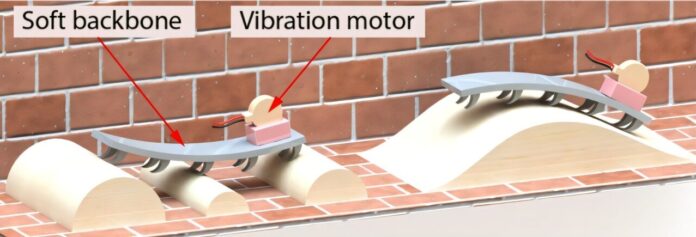Leafbot: A Flexible Robot Conquering Difficult TerrainsDeveloped at the Japan Advanced Institute of Science and Technology (JAIST), Leafbot is a soft robotic platform designed to navigate unpredictable, uneven surfaces where conventional rigid robots often fail. Researchers, including Professor Van Anh Ho and doctoral students Linh Viet Nguyen and Khoi Thanh Nguyen, have demonstrated its ability to overcome obstacles using a simplified vibration-driven mechanism, as detailed in the IEEE Transactions on Robotics.
Soft robotics is gaining attention for its inherent adaptability in unstructured environments. Unlike traditional robots that depend on complex control systems to manage irregular terrain, Leafbot leverages its soft, compliant structure—crafted from monolithic silicone rubber with curved projections that mimic limbs—to crawl and adjust its shape. A vibrating motor propels the robot, allowing it to tackle slopes, semi-circular barriers, and step-like fields effectively.
To understand Leafbot’s movement, the team developed an analytical model that considers forces such as centripetal acceleration, uneven friction, and limb deformation. Complementary finite element analysis simulations were also conducted to refine insights into the robot’s interactions with different surfaces. According to Professor Ho, the experiments confirmed that specific limb configurations are critical for optimizing performance over challenging landscapes.
Empirical tests compared three variations of the robot, each with distinct limb designs. The findings revealed that the curved limb structure is essential, enabling the robot to manage slopes up to 30 degrees and negotiate semi-circular obstacles. This seamless integration of theoretical models with practical testing underscores the scalability and effectiveness of the Leafbot design.
Moreover, the self-adjusting nature of Leafbot sets it apart from rigid robots that rely heavily on precise actuation. This adaptability is particularly valuable for applications in confined or uneven spaces, such as disaster areas filled with debris, industrial pipeline inspections, underground explorations, and even agricultural tasks like soil analysis and crop monitoring.
Looking ahead, co-author Khoi Thanh Nguyen envisions further enhancements to Leafbot by incorporating advanced sensory feedback and improved energy efficiency. Combined with developments in artificial intelligence and machine learning, these upgrades could pave the way for an autonomous system capable of real-time terrain adaptation and decision-making, potentially revolutionizing the field of soft robotics.





